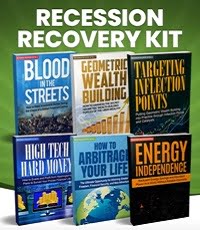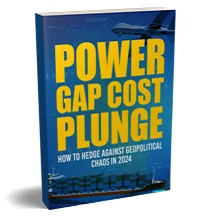
Take cash for clunkers. Everyone, with the exception of brain dead economists, knows that giving people money to scrap perfectly good vehicles is a value subtracting enterprise. Yet economists cheer on the outward demand for new cars it stimulates…and the boost to GDP.
But if this were really the road to riches, why not give everyone cash to buy a new car? Automaker factories would be buzzing. So, too, why not give everyone money to buy a house? Homebuilder payrolls would swell. This would work perfectly well…if we were living in fantasy land.
Another popular delusion of modern day economic thought is that wealth is created by borrowing money and spending it…as opposed to saving money and investing it. Simple logic proves this thinking is false. Yet economists pursue it anyway.
Statisticians call this a Type II Error. Here at the Economic Prism we call it stupidity. But that doesn’t mean economists don’t take any and every chance they get to repeat it over and over again…
Shop ‘til You Drop
Earlier this week, for instance, on Bloomberg, several economists explained with a straight face why the U.S. economy is immune to the economic illnesses plaguing the rest of the world. An abundance of cheap resources was not cited. Nor was a highly skilled labor force.
If you can believe it, America’s vast economic advantage, according to the Bloomberg article, is that American’s love to ‘shop ‘til you drop.’ In other words, ‘when the going gets rough, the rough go shopping.’ Apparently, all this shopping is supposed to keep the economy on the up and up…
“Call it America’s $11 trillion advantage: Consumer spending is likely to steer the U.S. economy safely through the shoals of deteriorating global growth and turbulent financial markets.
“The combination of more jobs, falling gasoline prices and low borrowing costs will help lift household purchases. Such tailwinds probably matter more than Europe’s struggles or the slackening in emerging markets that caused the Dow Jones Industrial Average last week to erase its gains for the year.”
Here’s what various professional economists had to say about consumers and the U.S. economy…
Consumers Don’t Stand a Chance
‘“We’ve got a lot of things working in favor of the consumer right now,’ said Nariman Behravesh, chief economist in Lexington, Massachusetts, at IHS Inc. ‘To have that kind of strength is the biggest asset for the U.S. It’s a pretty rock solid footing.”’
‘“We’ve got the proverbial 800-pound gorilla — the consumer,’ said Joseph LaVorgna, chief U.S. economist at Deutsche Bank Securities Inc. in New York. ‘“Households are more fixated on the good news here, and a big part of that is the labor market. The U.S. is going to be pretty immune to the rest of the world.”’
‘“In a slowing global growth environment, a consumer-dependent economy is a good thing,’ said Dean Maki, chief U.S. economist at Barclays Plc in New York and a former Federal Reserve economist who specialized in researching household finances. ‘Resilient’ spending is one reason ‘the U.S. outlook remains positive.”’
‘“I just don’t see a link between economic troubles overseas and the notion that the consumer is not going to buy a TV,’ said Waltham, Massachusetts-based McMillan, whose firm oversees $86 billion. ‘For the average American, the connection with these other concerns is very, very loose. They don’t live in the world, they live in the U.S.”’
These comments, no doubt, are plain dumb. As the Fed’s money printing experiment tapers out this month, the primary support underpinning corporate earnings will disappear. The down draft on the economy that will follow will be astounding. For even in the U.S., consumers don’t stand a chance.
Sincerely,
MN Gordon
for Economic Prism
Return from Consumers Don’t Stand a Chance to Economic Prism





